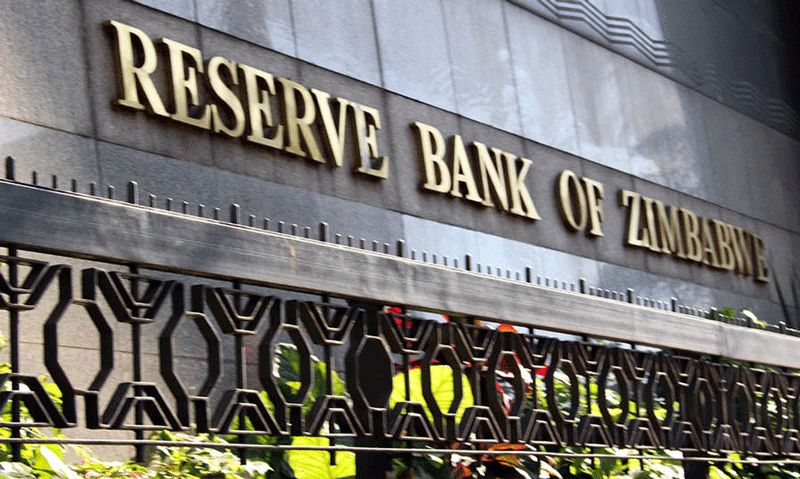
The year is 2008 and Piggy is sauntering on Samora Machel Avenue in the central business district of Harare. He then approaches the Reserve Bank Tower on number 80. It is basically a 28-story building and, at 120 metres, one of the tallest buildings in the country. It serves as the headquarters of the Reserve Bank of Zimbabwe (RBZ).
What is more fascinating for Piggy is not the building, it is the people walking in and out of the tower. For some seconds, he thinks he is at the CIA headquarters as he meets people in suits (most of them black). The atmosphere is charged, and everyone looks engrossed with their work.
It is that time when the RBZ had introduced the Basic Commodities Supply Side Intervention (Baccossi) programme to address the issue of shortages of basic commodities. Governor Gideon Gono had turned into the most powerful man in Zimbabwe after shutting down “promising” indigenous banking institutions, printing trillion-dollar notes, introducing the chapter “hyperinflation” in economics textbooks, and creating a bureaucratic structure at the bank that was involved in almost everything. Up to this day, it has never been clear to any ordinary citizen what the RBZ does or should be doing.
According to the International Monetary Fund (IMF), a key role of a Central Bank is to conduct monetary policy to achieve price stability (low and stable inflation) and to help manage economic fluctuations. Since the late 1980s, inflation targeting has emerged as the leading framework for monetary policy. Central Banks in Canada, the euro area, the United Kingdom, New Zealand, and elsewhere have introduced an explicit inflation target.
In Zimbabwe, the latest year-on-year inflation rate is 268,8%, while the month-on-month inflation rate is 3,2%. The big question is: Why has the RBZ failed to stabilise prices despite instituting several measures to curtail money supply growth? Piggy contends that the institutional design of a Central Bank is an important factor inasfar as boosting confidence and anchoring inflation expectations is concerned. In this article, he identifies critical issues that hinder monetary policy effectiveness in Zimbabwe.
Political independence, autonomy
Research has shown that Central Banks that plan for the long term and do not focus on economic performance during election years are more likely to maintain a commitment to low inflation. It is very critical for the RBZ to be independent from political control as an important way to reassure the public about the Bank’s credibility. Moreover, the degree of autonomy delegated to the Central Bank affects the design of the structure of the governing bodies and the accountability provisions.
Credibility of monetary policy
- Mavhunga puts DeMbare into Chibuku quarterfinals
- Bulls to charge into Zimbabwe gold stocks
- Ndiraya concerned as goals dry up
- Letters: How solar power is transforming African farms
Keep Reading
An analysis of inflation developments in Zimbabwe clearly reveals that a lack of confidence in the ZWL is a big factor in terms of fostering macroeconomic stability. Credibility refers to the degree of confidence that the public has in the central bank's determination and ability to meet its announced objectives. Policy changes and inconsistencies have a negative impact on the RBZ’s credibility as an institution.
In addition, a credible monetary policy should be implemented by an independent central bank through a rule which bounds the monetary authority's actions, avoiding the time-inconsistency problem.
Time consistent policies
A time consistent policy is one where a future policymaker lacks the opportunity or the incentive to default. On the contrary, a policy lacks time consistency when a future policymaker has both the means and the motivation to break the commitment. The fundamental insight regarding the notion of time-inconsistency and credibility, presented by Kydland and Prescott (1977), is that when economic agents are forward-looking, the policy problem emerges as a dynamic game between the government and the private sector - where the government is the dominant player, and the private sector is the follower.
The New Classical approach argues that since the monetary authority has no precommitment with an announced policy and usually makes use of its discretionary powers, it will have an incentive to cheat, making the announced policy time-inconsistent and then non-credible.
Consequences for bad inflation
There is a need to introduce laws so that Central Bankers or monetary authorities in Zimbabwe take responsibility and are accountable when inflation targets are not met. This will help make the public believe that they will commit to a low inflation rate. Most Modern Central Banks have legally imposed inflation targets.
For example, the Governor of the Bank of England must write a letter to the Chancellor explaining why targets are not met. In Zimbabwe, nothing has happened to Governor John Mangudya even after consistently failing to meet inflation targets.
Effective communication
Monetary authorities in Zimbabwe should consistently communicate and update the public on all important developments to the public. There is a need to provide consistent forward guidance on major macro-economic indicators, including the desired and expected path of interest rates, exchange rates and inflation.
Overall, an important highlight is that price-level risks in Zimbabwe remain elevated as domestic headline inflation has remained in the triple-digits. External factors have also impacted negatively on import prices of raw materials, food, fertilisers, and liquid fuels. Further, domestic adverse inflation expectations have also been reflected through forward pricing by economic agents. In the outlook, downside risks to inflation and exchange rate stability include
Continued geo-political tensions that are driving the surge in international food and oil prices (imported inflation),
Adverse inflation expectations and
Electioneering-driven government expenditures.
Investors on our market should look for avenues to preserve their ZWL balances. Piggy recommends investors to take long term positions in well-managed blue-chip names like Delta Corporation, Econet Wireless Zimbabwe, Innscor Africa, Meikles Limited and Hippo Valley Estates. Get tidbits on the stock market by joining a PiggyBankAdvisor WhatsApp Group (+263 78 358 4745). Get tidbits on the stock market by joining a PiggyBankAdvisor WhatsApp Group (+263 78 358 4745).
Matsika is the head of research at Morgan & Co, and founder of piggybankadvisor.com. — [email protected]/ [email protected] or +263 783 584 745.










